
This post was originally published on Michael West.

This post was originally published on Michael West.

This post was originally published on Michael West.

This post was originally published on Michael West.

This post was originally published on Michael West.
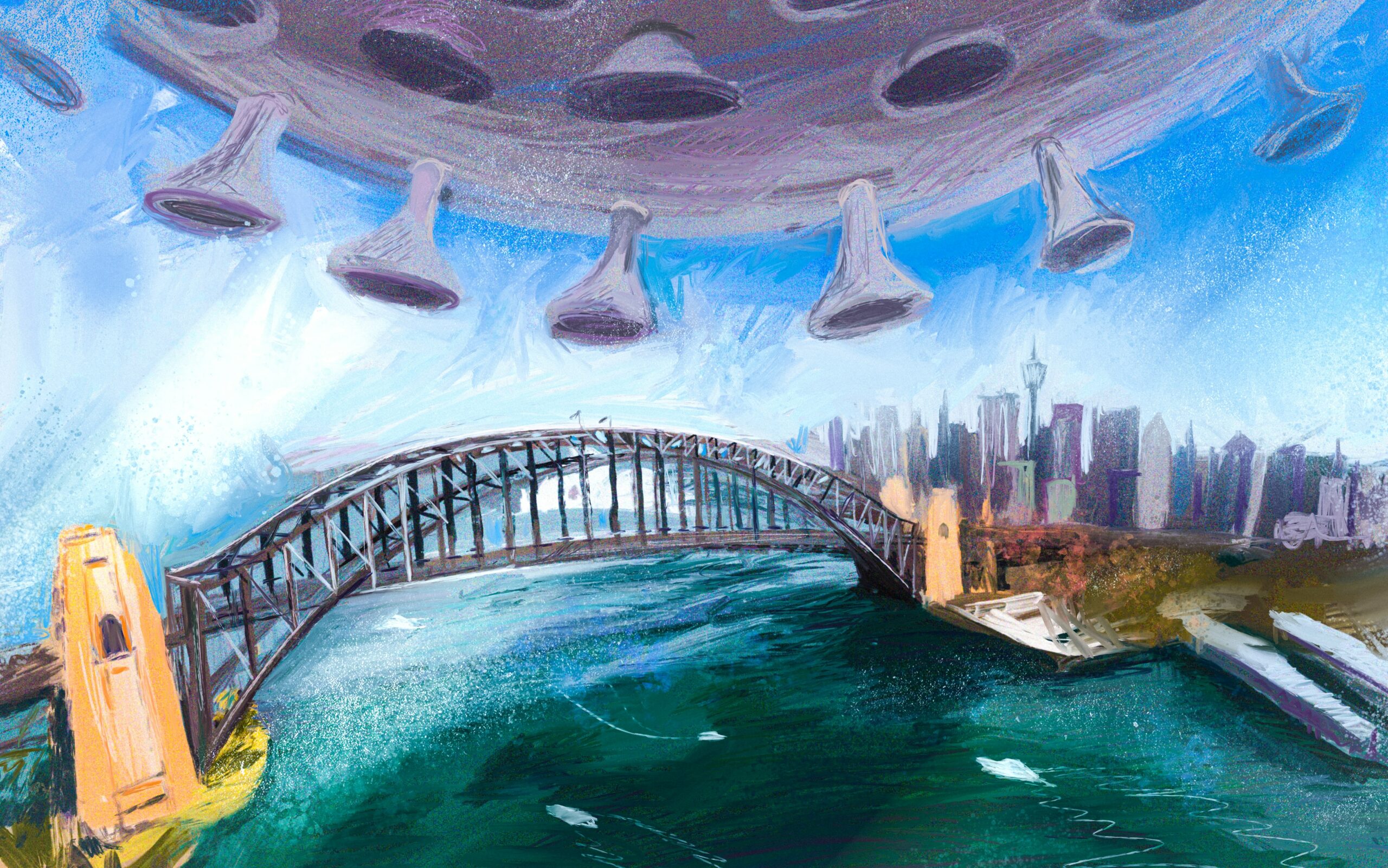
This post was originally published on Michael West.
Listen to a reading of this article:
❖
Julian Assange once said, “The overwhelming majority of information is classified to protect political security, not national security.”
As someone whose life’s work before his imprisonment was combing through documents of an often classified nature, he’d have been in a prime position to know. He’d have seen time and time again how a nation’s citizenry are not under the slightest threat from the secret information in the documents that had been leaked to him from around the world, but that it could damage the reputation of a politician or a government or its military.
As the persecution of the WikiLeaks founder continues to trudge on with the UK government’s granting the Biden administration permission to appeal a declined extradition request, claiming that it can safely imprison Assange without subjecting him to the draconian aspects of America’s prison system which caused the initial dismissal, it’s good to keep in mind that this is being done entirely for the purpose of controlling public access to information that is inconvenient for the powerful.
Desperate to Get Assange, US Promises No SAMS & Prison Time in Australiahttps://t.co/E0Aq22rFUp pic.twitter.com/OgpgqyS7TR
— Consortium News (@Consortiumnews) July 8, 2021
The prosecution of Julian Assange under the Espionage Act is being touted by the US government as a matter of national security; you can’t simply allow journalists to publish classified information about the things its military forces are doing in the nations they occupy, because that could endanger American lives.
Leaving aside the fact that the Pentagon already admitted years ago that it could not find a single instance of lives being lost due to the publications for which Assange is currently being prosecuted, this case is not and has never been about national security. This case has always been about narrative control.
The US government is not afraid that unauthorized publication of government secrets will lead to Americans being killed, it’s afraid it will lead to their knowing the truth. The powerful understand that narrative control is everything, and that an entire globe-spanning empire depends on keeping the masses from having a lucid perception of what’s really going on in the world. There is an unfathomable amount of power riding on their ability to continue doing this.
Assange isn’t in Belmarsh Prison for doing something wrong, but for doing something right. For trying to give the public information which will help them form a truth-based worldview so that they can make intelligent informed decisions about where they want to collectively steer society together. Because the oligarchic empire depends on the ability to manipulate the way people think, act and vote to benefit the powerful, this was like handing someone who’s being groomed by a sexual predator a guidebook of all of the psychological tactics that are being used.
This good deed could not go unpunished.
Nothing WikiLeaks published endangered the American people, it endangered a globe-spanning empire’s ability to control our understanding of what’s happening in the world. This was a most egregious offense as far as our rulers are concerned, and it could not be allowed to stand.
So an example is being made. In less polite times Assange would have been tortured and drawn and quartered in the town square while the king looked on sipping from a goblet of mead. In the days of polite liberal democracy our rulers must remain hidden, and they must publicly torture dissidents to death in the name of national security concerns.
Beneath all the spin and excuses, this is all being done to show everyone what happens to you if you reveal embarrassing truths about the most powerful people on earth. If you compromise their political security. It’s telling the world, “If you ever try to interfere in our control over the dominant narratives, this is what we will do to you.”
And, whether we fully understand what’s really happening or not, that’s the message that is being ingested here. Journalists who find themselves in a position to publish such things going forward will find themselves thinking thoughts about what happened to Julian Assange.
BREAKING: Julian Assange's fiancée @StellaMoris1 gives powerful statement outside the Royal Courts of Justice in London. "This case is the most vicious attack on global press freedom in history." #AssangeCase #FreeAssange pic.twitter.com/U5tq5fIMcA
— Don't Extradite Assange (@DEAcampaign) July 7, 2021
This is why it’s so important that they don’t win this case. We cannot allow ourselves to be cowed away from the truth in this way, or else we’re flying blind. We’re unable to obtain information which will help us steer society in a truth-based direction.
The Assange case receives so much attention not because of interest in one man’s fate, but because of interest in everyone’s fate. If humanity is ever to turn away from its self-destructive patterns and create a healthy world, it will necessarily need to do so guided by the light of truth and transparency. As long as the powerful are able to keep us confused and deluded using propaganda and government secrecy, such a world will never come into being.
___________________________
My work is entirely reader-supported, so if you enjoyed this piece please consider sharing it around, following me on Facebook, Twitter, Soundcloud or YouTube, or throwing some money into my tip jar on Ko-fi, Patreon or Paypal. If you want to read more you can buy my books. The best way to make sure you see the stuff I publish is to subscribe to the mailing list for at my website or on Substack, which will get you an email notification for everything I publish. Everyone, racist platforms excluded, has my permission to republish, use or translate any part of this work (or anything else I’ve written) in any way they like free of charge. For more info on who I am, where I stand, and what I’m trying to do with this platform, click here.
Bitcoin donations:1Ac7PCQXoQoLA9Sh8fhAgiU3PHA2EX5Zm2
This post was originally published on Caitlin Johnstone.

This post was originally published on Michael West.
Back in April 2020, I wrote an article criticising the government and the woefully incomplete list of coronavirus (Covid-19) symptoms it was sharing with the public. I compared our government’s advice to that of other countries. And what I found was that the NHS’s list of coronavirus symptoms was one of the most incomplete in the world.
At the time, my housemate and I were certain that we had coronavirus, although we had none of the listed symptoms. “It feels like I’ve smoked a whole packet of cigarettes,” my friend had moaned at the time. A few days later, his condition deteriorated. “It feels like someone is sitting on my chest,” he wheezed.
Fast-forward to July 2021, and I am recovering from coronavirus again. This time I was able to get an official diagnosis. Like the majority of people in the UK, it’s very likely that I was infected by the Delta variant: a strain of coronavirus that feels quite different to the virus we knew in early 2020.
The Delta variant is currently sweeping the UK and spreads much more easily than its predecessors. I had only been given one dose of the vaccine when I caught the virus. Yet friends I had been socialising with found themselves in bed even after receiving two vaccinations. I was shocked that Delta could spread so rapidly among people who had been double-vaccinated.
On top of this, the new Lambda variant – which is proving deadly in Peru and the rest of Latin America – has also made its way into the UK. Its transmission rate is thought to be higher than all other variants. And scientists fear that a new mutation of the strain is resistant to vaccines.
With so much knowledge of how the virus has changed over the course of a year and a half, it’s disturbing that the government hasn’t bothered to update the advice they’re giving to the public. This is particularly concerning given that coronavirus cases are rising steeply again.
The NHS still only lists three symptoms to watch out for:
- a high temperature – this means you feel hot to touch on your chest or back (you do not need to measure your temperature)
- a new, continuous cough – this means coughing a lot for more than an hour, or 3 or more coughing episodes in 24 hours (if you usually have a cough, it may be worse than usual)
- a loss or change to your sense of smell or taste – this means you’ve noticed you cannot smell or taste anything, or things smell or taste different to normal
Yet the ZOE app – the largest ongoing study of coronavirus in the world – lists different symptoms to watch out for. If you’re not vaccinated, ZOE lists the most common symptoms as being:
- Headache
- Sore Throat
- Runny Nose
- Fever
- Persistent cough
ZOE says:
Loss of smell comes in at number 9 and shortness of breath comes far down the list at number 30, indicating the symptoms as recorded previously are changing with the evolving variants of the virus.
And if you’ve already been given two vaccinations, ZOE lists the most common symptoms as:
- Headache
- Runny nose
- Sneezing
- Sore throat
- Other
That’s none of the symptoms listed by the NHS. ZOE says:
The previous ‘traditional’ symptoms as still outlined on the government website, such as anosmia (loss of smell), shortness of breath and fever rank way down the list, at 11, 29 and 12 respectively. A persistent cough now ranks at number 8 if you’ve had two vaccine doses, so is no longer the top indicator of having COVID.
With such dire advice still coming from the government, it’s no wonder that infection rates are shooting through the roof.
The Canary contacted the Department of Health and Social Care (DHSC) for a comment. The department said:
Since the start of the pandemic we have acknowledged COVID-19 has a much longer list of symptoms than the ones initially used in the case definition and our experts keep the list of symptoms under review.
But the DHSC didn’t address the question we asked, which was “why hasn’t the government updated its symptom list in almost a year and a half?” Instead, the DHSC told us:
Anyone experiencing the key symptoms – a high temperature, a new continuous cough, or a loss or change to sense of smell or taste – should get a PCR test as soon as possible and immediately self-isolate along with their household.
PCR tests are mainly for people who have symptoms, and a swab is sent off to a lab. The DHSC continued:
With around one in three people not showing symptoms of COVID-19, we have made regular, rapid testing available twice a week for free for everyone in England. Over 100 million LFDs have been carried out so far with over 200,000 cases identified that would not have been detected otherwise.
LFDs, or lateral flow tests, give results within 30 minutes and should be used if a person has no symptoms. Yet their effectiveness in picking up whether someone has the virus is questionable. I myself received a negative LFD result before getting a positive PCR result.
Boris Johnson’s government seems content that although coronavirus rates are increasing, our death rates are still low. But the government isn’t taking into account that, even if people don’t die, the effects of long Covid can be devastating. Shadow health secretary Jonathan Ashworth also argued:
Letting cases rise with no action means further pressure on the NHS, more sickness, disruption to education – and risks a new variant emerging with a selection advantage.
The emergence of new variants is particularly worrying. Because the more the virus mutates, the greater the chances of a vaccine-resistant strain developing. Meanwhile, states such as Germany continue to close their borders to UK citizens, citing the country as a new area “of variants of concern”.
As the UK government proudly prepares to ease all lockdown restrictions, Germany and others will, once more, be watching closely. Johnson will continue to try to convince the public that he’s doing a wonderful job. But, as always, he’s fooling no one.
Featured image via Flickr / NIAID-RML
By Eliza Egret
This post was originally published on The Canary.
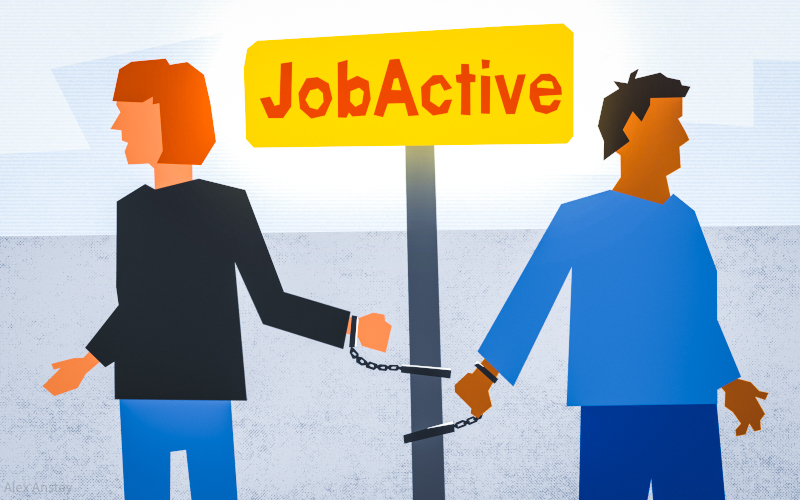
This post was originally published on Michael West.

This post was originally published on Michael West.
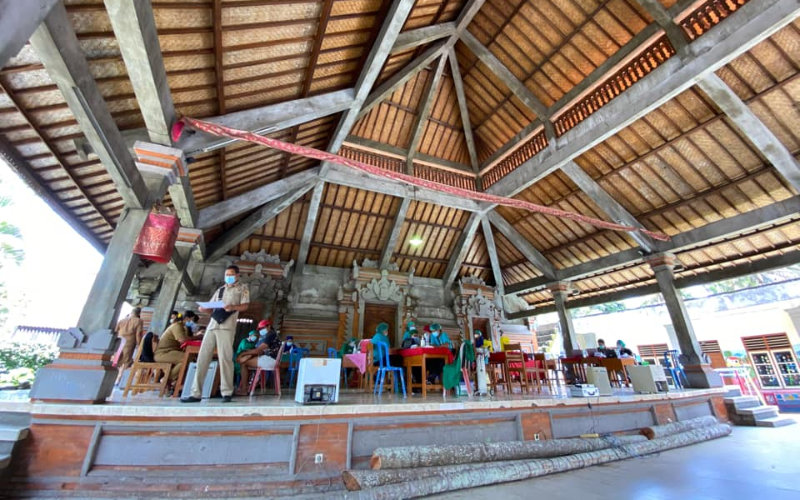
This post was originally published on Michael West.

This post was originally published on Michael West.

This post was originally published on Michael West.
OTTAWA | | TRADITIONAL, UNCEDED TERRITORY OF THE ALGONQUIN ANISHNAABEG PEOPLE —
We, a broad and diverse coalition of civil society groups, urge Parliament to move forward with passing an environmental racism law immediately following its summer break. Yesterday, the House of Commons environment committee completed its review of Bill C-230, which mandates the federal government to examine the link between race, socio-economic status and environmental risk. This marked a critical first step toward Canada acknowledging its shameful legacy of environmental racism and ensuring that all people in Canada benefit from environment protection policies.
Renamed the National Strategy Respecting Environmental Racism and Environmental Justice Act, the bill, if passed, would require the federal environment minister to develop a strategy on environmental racism and environmental justice – a Canadian first. Canada is long overdue for this legislation — parallel requirements have been in place in the U.S. since 1994.
It’s good to see Canada finally stepping up, but we have no time to lose to ensure this draft legislation actually becomes law. With the House of Commons scheduled to break for the summer later this week and a potential election this fall, we strongly urge all parties to move the bill through the final stages of the legislative process as soon as possible when Parliament resumes sitting following its summer break. Canadians can’t afford a delay of this long-awaited legislation.
Additional information on the review of the Standing Committee on Environment and Sustainable development:
The National Anti-Environmental Racism Coalition (NAERC) was formed in 2020 by Ingrid Waldron from the ENRICH Project and Naolo Charles from the Black Environmental Initiative to mobilize organizations and individuals for the environmental protection of Black, Indigenous and immigrant communities and for the promotion of environmental justice in Canada. The National Anti-Environmental Racism Coalition is composed of over 60 organizations working in the social and environmental sector. Our current work is paving the way for the success of a national environmental justice strategy in Canada.
– 30 –
Statement issued by the following groups: Black Environmental Initiative, Breast Cancer Action Quebec, Canadian Association of Physicians for the Environment (CAPE), Canadian Environmental Law Association, Coalition for Environmental Rights, David Suzuki Foundation, Ecojustice, ENRICH Project, Environmental Defence, Équiterre, National Anti-Environmental Racism Coalition, Nature Canada, Prevent Cancer Now, Sierra Club Canada Foundation, West Coast Environmental Law
Please see here for quotes from NAERC groups and individuals supporting Bill C-230.
About:
Environmental racism occurs when environmental policies or practices intentionally or unintentionally result in disproportionate negative impacts on certain individuals, groups or communities based on race or colour, and as well as unequal access to environmental benefits. Examples of environmental racism in Canada have been documented by the ENRICH Project and in a 2020 report by the UN Special Rapporteur on toxics and human rights.
For more information or a media interview, please contact:
Brendan Glauser, bglauser@davidsuzuki.org, 604-356-8829
Sarah Jamal, sjamal@environmentaldefence.ca, 905-921-7786
The post Canada’s first environmental racism bill closer to becoming law appeared first on Environmental Defence.
This post was originally published on Environmental Defence.
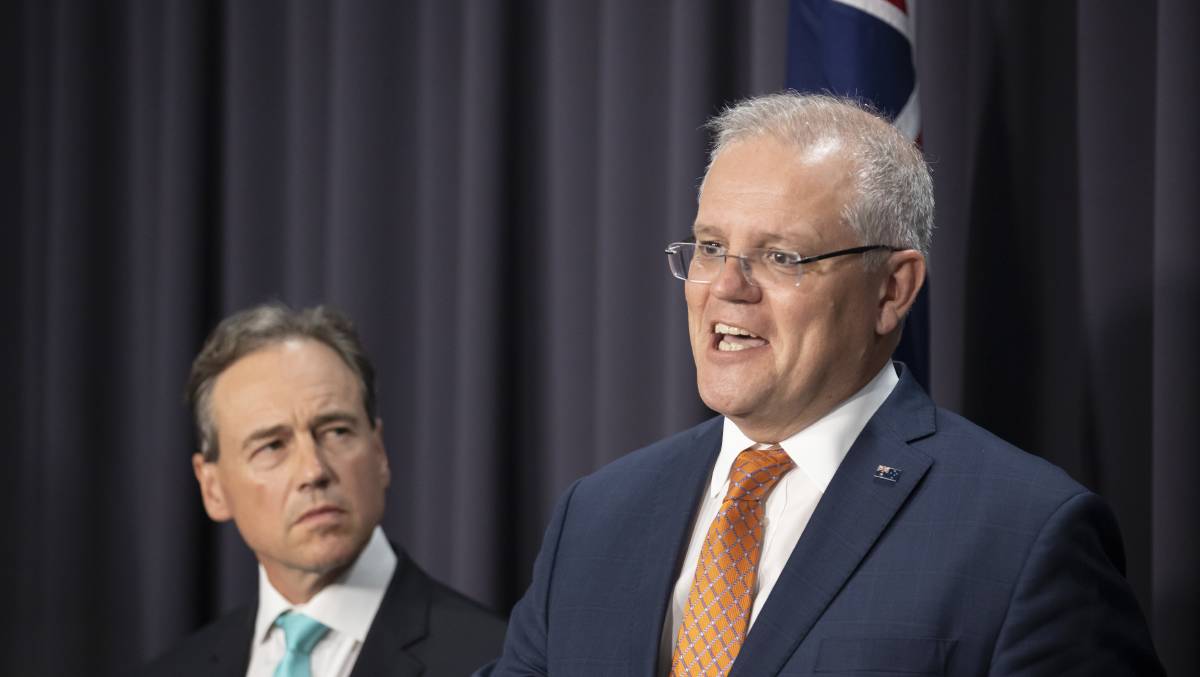
This post was originally published on Michael West.

On June 14, 2021, the Biden Administration announced a new policy intended to ease the tremendous harm of the immigration backlog on immigrant survivors of serious crime. The policy, which specifically affects immigrant survivors eligible for the U Visa, will authorize survivors to work while their applications await final approval.
“We’re hopeful that the Administration’s announcement will make a real difference in survivors’ lives over the next couple of years,” said Zeyla Gonzalez, HRI’s Crime Victims Program Department of Justice Accredited Representative. “The decade-long wait for approval leaves our clients in a painful and dangerous limbo. We applaud this first step in moving toward a more just system for immigrant survivors.”
Together with SMU Law’s Dedman Clinic, HRI released a report last year detailing the human toll of the backlog on immigrant survivors. Fighting immigration backlogs, including the U Visa backlog, is a key priority of HRI’s client-led advocacy group, HRI Connect. This week, the group authored a letter to President Biden, sharing their hopes that the Administration will prioritize reducing the immigration backlogs. The letter shares, in part:
“We, along with our families at HRI Connect, have been waiting for our immigration cases to be resolved. The wait has been too long and painful; discouragement wears on us at times. Even so, we have faith that your Administration can help us resolve this problem of a long and hard wait, making the process much shorter so that we can stabilize our legal status in this country we call home.”
About HRI
For the past 20 years, Human Rights Initiative of North Texas has provided legal and critical social services for immigrant survivors of human rights abuses from all over the world. HRI Connect is a group of current and former HRI clients who believe in building a community where everyone feels welcomed and embraced, regardless of who we are, what we look like, or how well we speak English. For more information, visit www.hrionline.org.
The post HRI Statement on Reduction of Immigration Backlog for Immigrant Survivors appeared first on Human Rights Initiative.
This post was originally published on Blog – Human Rights Initiative.

“Lipstick wearers may inadvertently eat several pounds of lipstick in their lifetime. But unlike food, chemicals in lipstick and other makeup products are almost entirely unregulated in the U.S. and Canada,” warns Graham Peaslee, senior author of a new study that came out earlier this week. The study found high levels of per- and polyfluoroalkyl substances (PFAS) or “forever” chemicals in most waterproof mascara, liquid lipsticks and foundations tested. On top of that, most of the products with high levels of PFAS didn’t even have it labelled on the ingredient list!
PFAS are often found in non-stick, waterproof and grease resistant products (such as Teflon pans and food packaging). PFAS can easily be absorbed into our food and bodies, which is concerning as these chemicals have been linked to a wide range of serious health harms, from cancer to obesity to reproductive problems. PFAS have also been found to be extremely persistent in the environment, which is where their description as “forever” chemicals came from. (A new study also found PFAS in rain water around the Great Lakes basin!)
As seen in the table below, out of the 231 Canadian and American cosmetics tested, more than 52 per cent of them had high levels of fluorine, which suggests the presence of PFAS. Many of the products that contained PFAS were advertised as “waterproof,” “wear-resistant,” or “long-lasting.” Only one of the 17 Canadian products tested had PFAS labelled in the ingredient list. This makes it difficult for Canadian consumers to make informed choices when shopping.

Although transparency of toxics in products is needed in order to make informed shopping decisions, fully disclosing all ingredients (including those hidden in fragrances) isn’t the best way to ensure toxics can be avoided by consumers because “toxic-free” products are typically more expensive. The onus shouldn’t be put on people to decode ingredient labels in order to purchase safer products. Banning or controlling toxics is a far more reliable way to protect our health and the environment.
Unfortunately, the Canadian government has a history of tolerating chemicals that are controlled in places such as Europe. This is in part because of outdated methods for chemical risk management, including a two decade old law that is meant to protect our health and environment from toxics and pollution, the Canadian Environmental Protection Act (CEPA).
Recently, the government has shown signs of action:
The post New study finds PFAS chemicals hiding in some “long-lasting” and “waterproof” makeup appeared first on Environmental Defence.
This post was originally published on Environmental Defence.

This post was originally published on Michael West.

This post was originally published on Michael West.

This post was originally published on Michael West.
Listen to a reading of this article:
In totalitarian regimes they have massacres and wars. In free democracies they have humanitarian interventions.
In totalitarian regimes they use torture. In free democracies they use enhanced interrogation techniques.
In totalitarian regimes they fund terrorist groups to create instability. In free democracies they fund terrorist groups to create stability.
In totalitarian regimes evil dictators bomb their own people. In free democracies we do it for them.
In totalitarian regimes a single party upholds and enforces the status quo. In free democracies, two parties uphold and enforce the status quo.
In totalitarian regimes the government controls the press and determines what information the public is allowed to have access to. In free democracies it is billionaires who do this.
In totalitarian regimes they wage brutally violent crackdowns on protesters to quash dissent. In free democracies they do this also, but then they kneel while wearing kente cloth.
In totalitarian regimes you know exactly who rules over you. In free democracies the true rulers hide behind fake puppet governments.
In totalitarian regimes any elections they have are rigged, and challengers are hand picked by the authoritarian rulers. In free democracies the rulers rig the elections and hand pick the candidates, and they do this to other countries as well.
In totalitarian regimes they imprison journalists for revealing inconvenient truths about the powerful. In free democracies they imprison journalists for revealing inconvenient truths about the powerful, and all the other journalists jump on social media to say he deserved it.
In totalitarian regimes they don’t let political dissidents speak. In free democracies they just refuse dissidents any influential platforms and use algorithms to keep revolutionary ideas from being heard by a significant number of people.
In totalitarian regimes they circle the planet with military bases, wage endless wars which kill millions, and work to destroy any nation which disobeys their government. Whoops, sorry, that’s actually free democracies.
In totalitarian regimes political speech is heavily regulated by the government. In free democracies political speech is heavily regulated by the government via Silicon Valley.
In totalitarian regimes the citizenry are kept impoverished while the rulers live lavishly with more than they could ever spend. In free democracies the citizenry are kept impoverished while the rulers live lavishly with more than they could ever spend.
In totalitarian regimes there is lack. In free democracies there is artificial lack.
In totalitarian regimes the government spy agency tells the news media what stories to run, and the news media unquestioningly publish it. In free democracies the government spy agency says “Buddy, have I got a scoop for you!” and the news media unquestioningly publish it.
In totalitarian regimes bands of armed thugs patrol the streets to enforce obedience to authority. In free democracies bands of armed thugs patrol the streets to enforce obedience to authority and Hollywood makes movies about how heroic they are.
In totalitarian regimes students are taught to mindlessly worship a picture of the evil dictator. In free democracies students are taught to mindlessly worship the flag.
In totalitarian regimes students are taught never to question authority. In free democracies students are taught never to question the news reporters.
In totalitarian regimes they commit evil deeds which free democracies could never get away with doing. In free democracies they have totalitarian regimes commit those evil deeds for them.
In totalitarian regimes the people are kept too brutalized and cowed to rise up against their rulers. In free democracies the people are kept too propagandized and brainwashed to rise up against their rulers.
In totalitarian regimes the powerful determine what happens regardless of the desire of the people. In free democracies the powerful determine what the people will desire to happen.
In totalitarian regimes everyone is a slave to the powerful. In free democracies everyone is a Slave™ to the Powerful™.
In totalitarian regimes you are forced to obey. In free democracies you are trained to think your obedience was your own idea.
In totalitarian regimes you are not free, and you know it. In free democracies you are not free, and you don’t know it.
___________________
The best way to get around the internet censors and make sure you see the stuff I publish is to subscribe to the mailing list for at my website or on Substack, which will get you an email notification for everything I publish. My work is entirely reader-supported, so if you enjoyed this piece please consider sharing it around, following me on Facebook, Twitter, Soundcloud or YouTube, or throwing some money into my tip jar on Ko-fi, Patreon or Paypal. If you want to read more you can buy my books. Everyone, racist platforms excluded, has my permission to republish, use or translate any part of this work (or anything else I’ve written) in any way they like free of charge. For more info on who I am, where I stand, and what I’m trying to do with this platform, click here.
Bitcoin donations:1Ac7PCQXoQoLA9Sh8fhAgiU3PHA2EX5Zm2
This post was originally published on Caitlin Johnstone.

This post was originally published on Michael West.

This post was originally published on Michael West.
Labor has called on the federal government to get on the cyber offensive and “release the hounds” on global ransomware gangs following a series of high profile cyber-attacks against Australian companies and hospitals.
Last week Australia’s largest meat processor JBS Foods was forced to shut down its local operations for a day following a ransomware attack against the global company that the US government has said originated from a Russian criminal organisation.
Days later, the US Department of Justice confirmed that it would be upping its investigations of ransomware attacks to a similar level as terrorism.
Speaking in Parliament last week, shadow cybersecurity minister Tim Watts said these events should be a wake-up call for the government, and reiterated his calls for a national ransomware strategy.
“It’s a timely reminder of the economic cost of the scourge of ransomware – it’s a jobs and investment destroyer when the economy can least afford it. It also highlighted the urgent need for the Morrison government to adopt a national ransomware strategy to combat these attacks,” Mr Watts said.
“The JBS Foods barbeque stopper should be a wake-up call for the Morrison government to finally take responsibility.”
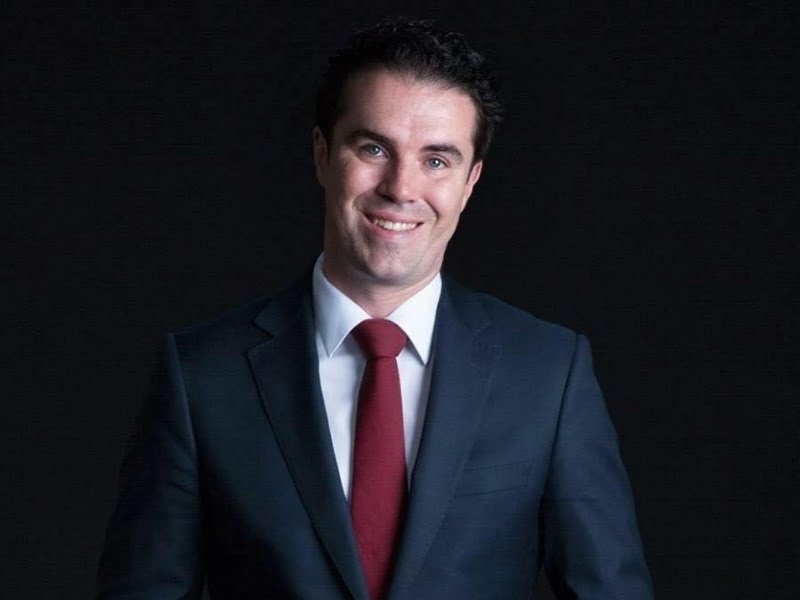
Mr Watts said the government should be proactive in its fight against ransomware gangs, and its spy agencies should be actively trying to disrupt these organisations.
In Senate Estimates last week it was revealed that the Australian Signals Directorate (ASD) did not take any offensive operations against those responsible for the cyber-attack on Nine, despite appearing to know who was behind it.
“As part of a national ransomware strategy, the Morrison government needs to get serious about using its signals capability to disrupt cybercriminals and deter attacks on Australian targets,” he said.
“To date, these ransomware crews have been able to target Australian organisations with impunity. No wonder we’ve seen these attacks increasing in their scale and frequency. In general, the position of the Morrison government is not to tell us or the cybercriminals targeting Australia what they are doing to disrupt them. A secret deterrent is no deterrent at all.”
The ASD should create a “target list” of the top 10 ransomware groups targeting Australia and ramp up efforts to disrupt their operations, he said.
“The scourge of ransomware has become an intolerable burden on our nation – a $1 billion annual burden, collectively. It’s time that we said enough is enough. It’s time to release the hounds on these ransomware crews,” Mr Watts said.
“Ransomware groups should fear the consequences of being added to ASD’s targeting list. We need to end the age of impunity for ransomware attacks and teach these ransomware groups that there are consequences for targeting Australian organisations with ransomware attacks and that these attacks are not worth the potential benefits.
“The Morrison government has left Australian governments, businesses and community groups to combat these international ransomware groups for too long,” Mr Watts said.
“It’s time it took responsibility, did its job and developed a national ransomware strategy. These groups are the modern day pirates, and it’s time we treated them that way.”
Mr Watts also recently called for the government to implement a mandatory ransomware notification scheme, with businesses or individuals to report details of an attack to government agencies. At Senate Estimates last month, Home Affairs secretary Mike Pezzullo confirmed it was “likely” that such a scheme would be introduced.
The post Time to ‘release the hounds’ on ransomware gangs appeared first on InnovationAus.
This post was originally published on InnovationAus.
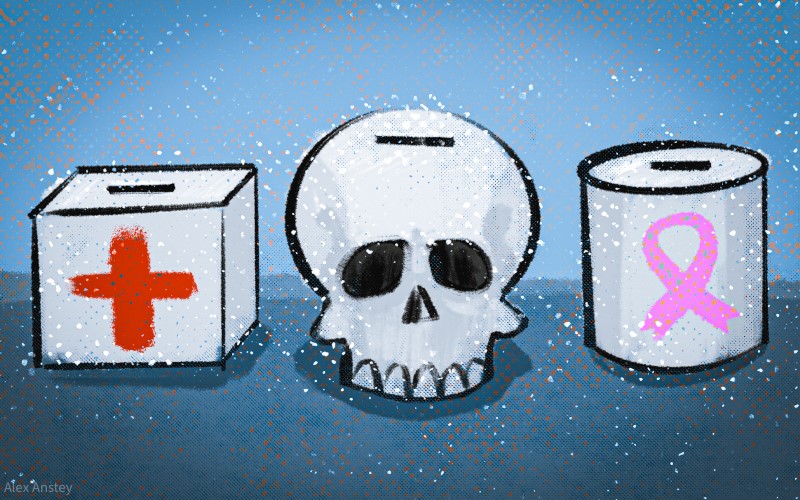
This post was originally published on Michael West.

This post was originally published on Michael West.

This post was originally published on Michael West.

This post was originally published on Michael West.

This post was originally published on Michael West.

This post was originally published on Michael West.